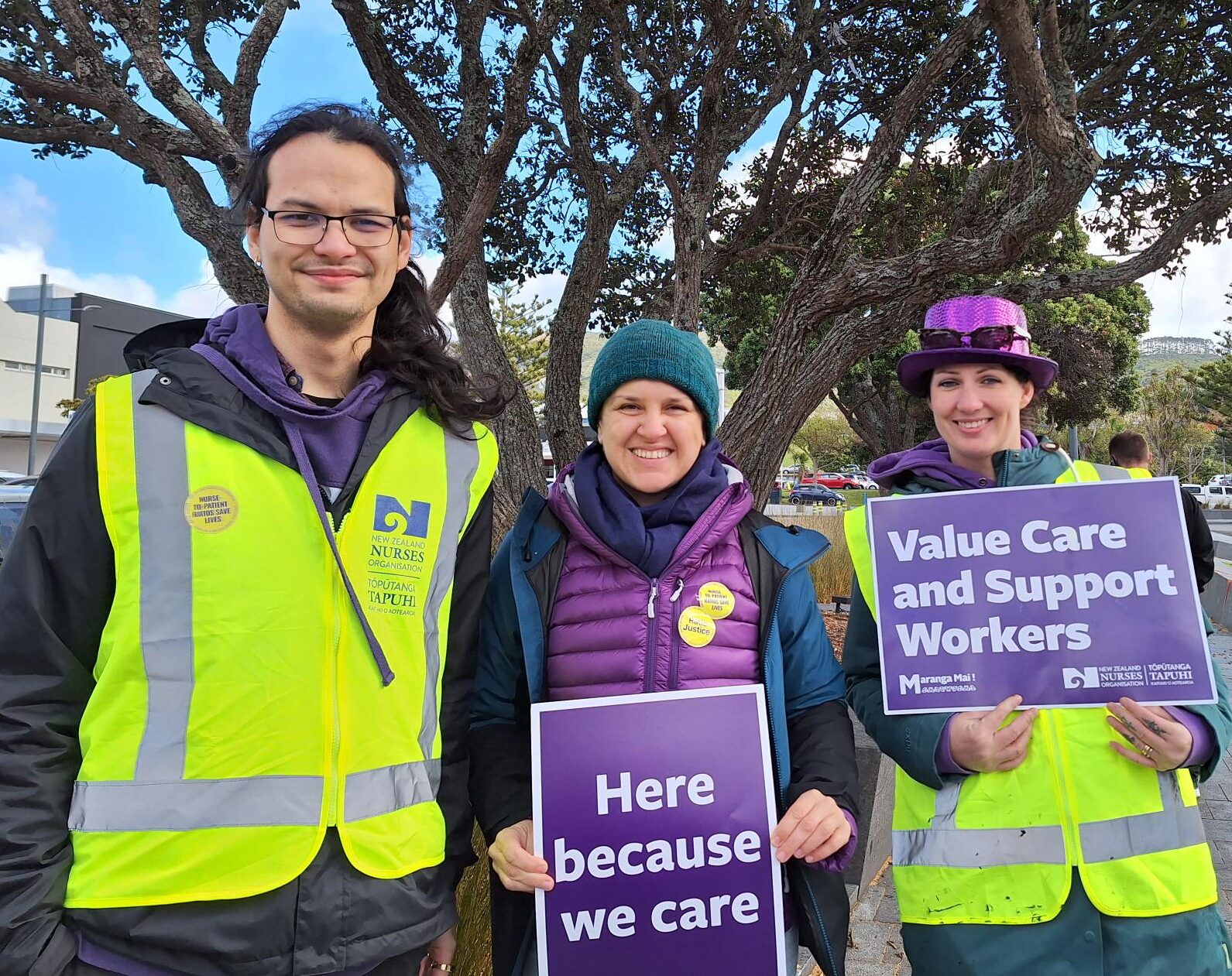During the COVID-19 pandemic, nurses across the world found themselves being hailed as heroes for working at an unprecedented time in our history.
Amid global health workforce shortages, nurses suddenly found themselves on the frontline of a life-threatening pandemic. They were even more essential to the functioning of society and — unlike much of the remaining population in an imposed lockdown — continued to work around the clock amid the global crisis.
While the world has now resumed some normalcy, fast-track immigration has continued for internationally-qualified nurses (IQNs). This — combined with some unscrupulous public health funding constraints — has led to a health sector flooded by workers but not enough jobs.
When the Government’s 2024 Budget proudly announced a $16.68 billion investment in health across three years, analysis by the Council of Trade Unions, NZNO, the PSA and the Association of Salaried Medical Specialists found that in real terms this added up to a mere 0.4 per cent boost for 2024/25. This was also broken down in a recent NZ Medical Journal editorial.
In a year when inflation was at seven per cent and with an expanding aged population, this amounted to a decrease of funding to the health-care sector. Health-care workers and unions were appalled, saying it would barely be enough to maintain current services, let alone meet new targets or address workforce shortages.
Many businesses are now being forced to hike prices or restructure. Many aged-care providers have been reducing the number of workers they employ and/or reducing the number of hours on offer. If workers require more job security, they are forced to look for another position in a swamped market.
During COVID, hospital staffing in some areas improved a little as non-urgent services were delayed, and staff redeployed. I was working in a neonatal intensive care unit (NICU) at the time and we had nurses from the outpatients’ department doing shifts, meaning we were so overstaffed I often had just one baby to care for instead of three!
In the midst of a changing world, workers were forced to re-evaluate their values. Some chose not to vaccinate and lost their jobs; some walked from their jobs for health or age-related reasons, and some were afraid of risking their lives.
It delivers a nasty slap in the face after all we endured during the pandemic.
In the aftermath of COVID, when all services resumed, so too did the staffing shortage.
The Government responded by changing the immigration rules for nurses wanting to enter the country. Prior to 2022, nurses fell in the tier 2 category, meaning they would have to work for two years before they could apply for permanent residency. Now nurses would fall under the tier 1, or “green list”, meaning they would get permanent residency straight away.
While this potentiated a quick improvement in staffing shortages, there have lately been complaints by some overseas nurses, after graduating from (costly) competency assessment programmes (CAPs), that they are not being hired.
Offshore nurses came in droves, while health funding was reduced so significantly that nobody is hiring. Furthermore, New Zealand nurses graduating from their three-year nursing degrees this year have been plagued by uncertainty about their future amid Te Whatu Ora hiring freezes and concerns about supported entry positions.
One day recently on TradeMe, there were just 117 job listings for RNs across the whole country.

A recruiter from health recruitment firm Frontline Health told me recently that nurses are not hearing back about jobs they applied for. She explained that an influx of CAP nurses means each job listing may get 400 applications or more.
‘This will create a greater gender-based pay divide and guarantee more of our Kiwi nurses leave in droves to better job security and financial stability in other countries.’
Despite a lack of job listings, hospitals continue to be criticised in the media for closing or turning people away, absurd wait times, for having no doctors on site and — worst of all — for people actually dying unnecessarily, because the right staff or facilities were not available.
The unintended (or perhaps intended) consequences of the reduced funding to the health sector, combined with a flooded job market, means that many employers may opt for the most cost-effective employee.
New Zealand new graduates start on the bottom rung of the salary ladder, while experienced and seasoned nurses will likely become a last resort as they will want to stay on the top rung. This will create a greater gender-based pay divide and guarantee more of our Kiwi nurses leave in droves to better job security and financial stability in other countries.
The Government has declared war on its citizens’ health.
The breadcrumb funding of the health-care sector shows how little the Coalition Government cares for the health of its citizens and workers who are the real backbone of the country.
The lack of appropriate services and staff where they are sorely needed means people are literally dying. Your patients’ health, even your health and mine, are at risk. It delivers a nasty slap in the face after all we endured during the pandemic.
Furthermore, it is a kick to all workers who are already down from the exorbitant cost of living. Welcome to our new reality, New Zealand/fellow nurses. We have moved from hero to zero.
— Anita Cook is an aged care nurse and NZNO delegate based in Wellington.




